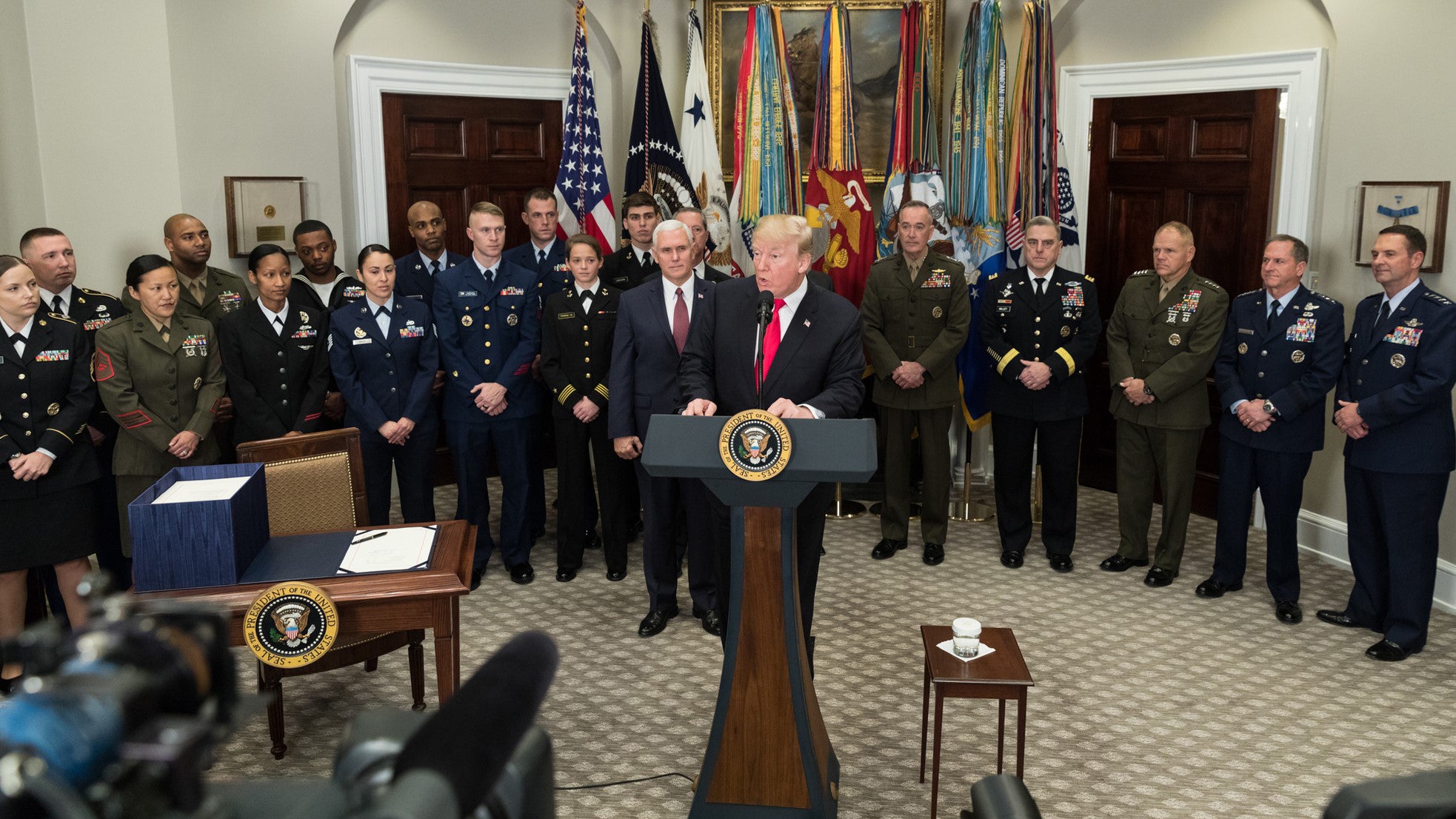New Security Strategy Calls for Stronger Military
New Security Strategy Calls for Stronger Military

The 2017 National Security Strategy released Dec. 18 by the White House calls for renewing the U.S.’s competitive military advantages.
“The United States must retain overmatch—the combination of capabilities in sufficient scale to prevent enemy success and to ensure that America’s sons and daughters will never be in a fair fight,” it says. “Overmatch strengthens our diplomacy and permits us to shape the international environment to protect our interests.”
To do this, the U.S. “must restore our ability to produce innovative capabilities, restore the readiness of our forces for major war, and grow the size of the force so that it is capable of operating at sufficient scale and for ample duration to win across a range of scenarios.”
“We must convince adversaries that we can and will defeat them—not just punish them if they attack the United States,” it says. Allies must do the same.
Priorities in the new strategy match what Army leaders have been saying. It calls for speeding the fielding of new capabilities and harnessing technology. The military needs to be bigger, it says: “The size of our force matters.” It also calls for improving readiness and having a joint force “capable of deterring and defeating the full range of threats.”
“The United States must develop new concepts and capabilities to protect our homeland, advance our prosperity and preserve peace,” says the document, which faults past administrations for not doing enough to keep the military strong.
“Since the 1990s, the United States displayed a great degree of strategic complacency. We assumed that our military superiority was guaranteed and that a democratic peace was inevitable,” it says.
If anything, the world is more dangerous and more complex today, the document says. “Adversaries studied the American way of war and began investing in capabilities that targeted our strengths and sought to exploit perceived weaknesses. The spread of accurate and inexpensive weapons and the use of cyber tools have allowed state and non-state competitors to harm the United States across various domains.”

